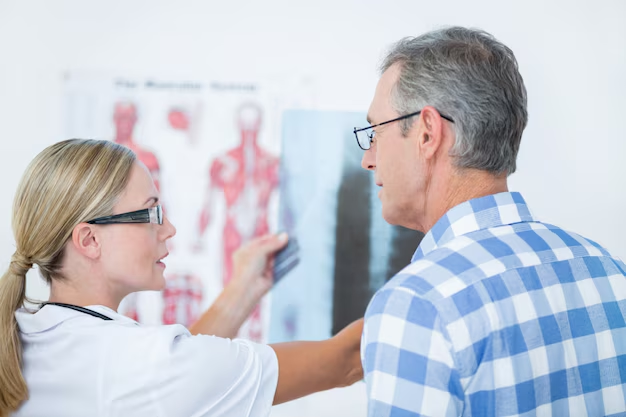Understanding ALS Diagnosis: What You Need to Know
Every year, thousands of individuals are faced with the daunting question: could it be ALS? Amyotrophic Lateral Sclerosis, commonly known as ALS or Lou Gehrig's disease, is a progressive neurodegenerative disorder that affects nerve cells in the brain and spinal cord. While the thought of this diagnosis can be intimidating, understanding how it's diagnosed can help demystify the process. In this article, we unravel the intricate steps involved in diagnosing ALS, providing a comprehensive guide to help you or a loved one navigate this challenging path.
The Complexity of ALS: Why Accurate Diagnosis is Crucial
ALS can initially be misdiagnosed as other neurological diseases because of overlapping symptoms. It’s imperative to distinguish ALS from other conditions early to manage the disease effectively and improve quality of life for those affected.
Key Symptoms of ALS:
- Muscle weakness in arms, legs, or hands.
- Difficulty speaking or swallowing.
- Muscle cramps or twitches (fasciculations).
- Impaired use of limbs.
These symptoms can vary greatly among patients and overlap with conditions like multiple sclerosis or spinal muscular atrophy, making diagnosis a critical and complex process.
The Diagnostic Journey: How Specialists Identify ALS
Medical History and Physical Examination
The path to diagnosing ALS begins with a detailed medical history. Physicians ask about symptoms, family history, and overall health. They aim to rule out other conditions and understand the progression of symptoms. Early symptoms of muscle weakness or twitching are often subtle and easily overlooked, making a thorough health background essential.
The neurological examination follows, where specialists assess muscle strength, tone, and reflexes. The presence of brisk reflexes, muscle stiffness, and wasting can indicate ALS, guiding further testing.
Electromyography (EMG) and Nerve Conduction Studies (NCS)
Electromyography (EMG) is a crucial test in the ALS diagnostic toolkit. This test measures electrical activity in muscles, detecting nerve signal patterns associated with motor neuron disease. Abnormalities in several muscle regions can indicate ALS.
Nerve Conduction Studies (NCS) complement EMG by evaluating the speed and efficiency of electrical signals in the nerves. This helps exclude other nerve conditions like peripheral neuropathy.
While these tests are pivotal, they alone cannot diagnose ALS; they serve to narrow down the diagnosis by pointing to motor neuron issues.
Imaging and Laboratory Tests
Magnetic Resonance Imaging (MRI) is typically utilized to rule out other potential causes of symptoms, such as tumors or herniated discs. Although MRI does not diagnose ALS directly, it helps eliminate other pathologies.
Blood and urine tests are conducted to check for markers of other diseases that might mimic ALS, like thyroid disorders or heavy metal poisoning. These tests ensure a comprehensive approach, ruling out reversible conditions before confirming an ALS diagnosis.
Lumbar Puncture and Genetic Testing
In some cases, a lumbar puncture (spinal tap) may be performed to analyze cerebrospinal fluid. This can help exclude inflammatory conditions, although it is less commonly used specifically for ALS.
Genetic testing may be recommended if there is a family history suggesting a hereditary form of ALS. While only about 5-10% of ALS cases are familial, identifying a genetic pattern can influence clinical management and research participation.
Navigating the Diagnosis: Emotional and Practical Considerations
Receiving an ALS diagnosis can be incredibly emotional. It's crucial for individuals and families to have access to support networks including counselors, patient advocacy groups, and ALS associations. These resources provide emotional support, practical advice, and community connections to navigate the journey ahead.
Building Your Healthcare Team
Choosing the right healthcare team is pivotal. You’ll typically work with a neurologist experienced in motor neuron diseases, who coordinates with other specialists like respiratory therapists, speech therapists, and nutritionists. A multidisciplinary approach ensures comprehensive care, addressing all aspects of the disease as it progresses.
Contemplating Treatment and Management Options
While there is no cure for ALS, treatments aimed at slowing disease progression or alleviating symptoms are available. Medications, like Riluzole and Edaravone, have been approved to extend survival or slow progression. Clinical trials might also be an option for some patients seeking more aggressive intervention.
Apart from medical interventions, assistive devices, like communication aids or mobility supports, help maintain independence and quality of life.
The Bigger Picture: Understanding ALS Research and Future Directions
Scientific research into ALS is ongoing, focusing on understanding the genetic and environmental factors involved, and developing novel therapies targeting disease mechanisms. New insights into gene mutations and nervous system pathways are paving the way for innovative treatments and hope for future generations.
Alternative approaches like stem cell therapy and personalized medicine are gaining traction and being actively explored by researchers worldwide. Staying informed about these developments is beneficial for patients and families, offering hope and potential participation in pioneering studies.
Conclusion: Knowledge Empowers
Understanding the comprehensive steps in diagnosing ALS helps demystify the process, fostering a sense of control and preparedness. Remember, each ALS journey is unique, and gathering information empowers you to make informed decisions about care and management.
Offering a supportive community and establishing a strong healthcare team can alleviate some of the burdens of this challenging diagnosis, enabling those affected to focus on living life to its fullest extent.
Key Takeaways for Navigating an ALS Diagnosis 🚀
- Recognize Symptoms: Be aware of muscle weakness and fasciculations. Consult a neurologist if symptoms arise.
- Understand Diagnosis: EMG and NCS are critical in diagnosing ALS, ruling out other conditions.
- Support Networks: Engage with ALS associations and support groups for emotional and practical help.
- Multidisciplinary Care: Work with a comprehensive healthcare team for holistic management.
- Stay Informed: Keep abreast of research advancements and clinical trials for potential treatments.
- Empowerment through Knowledge: Understanding ALS can help manage the journey ahead.

